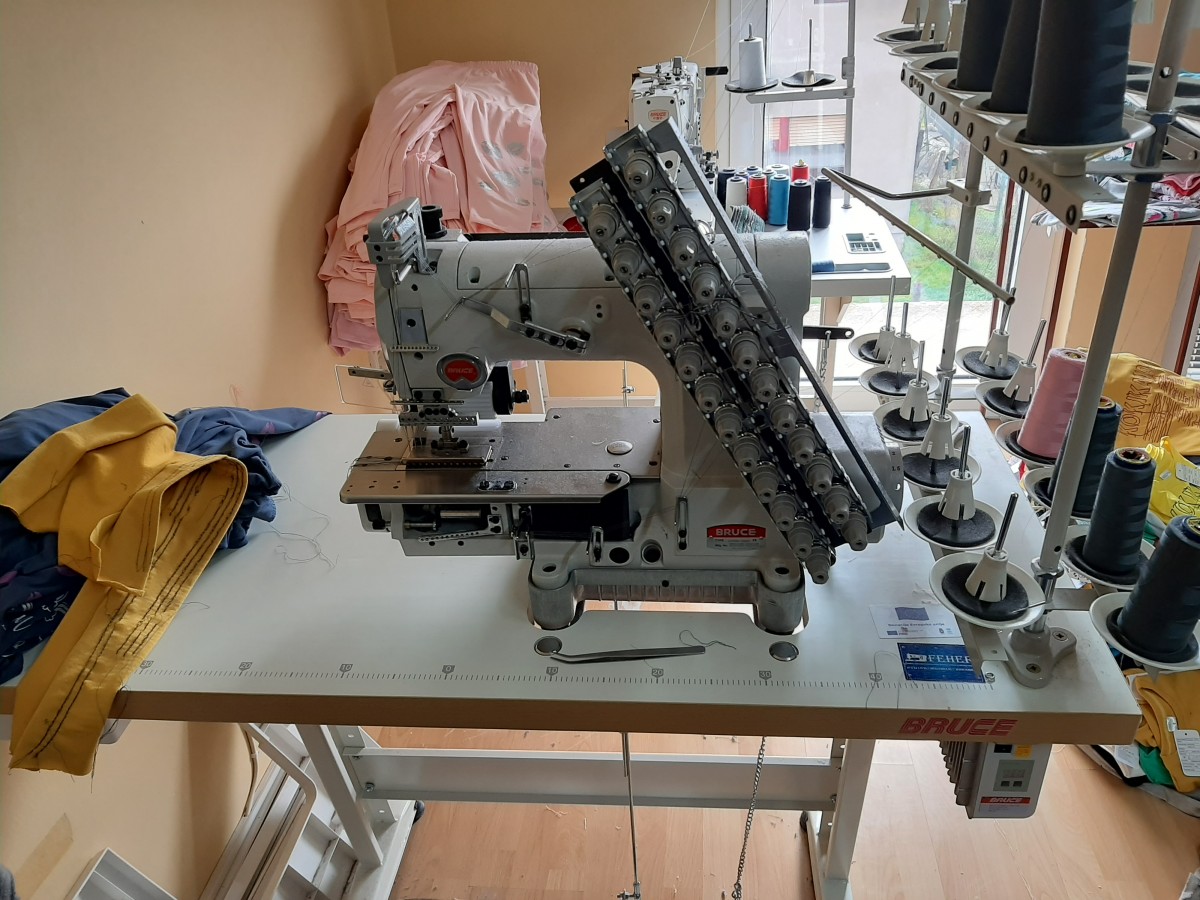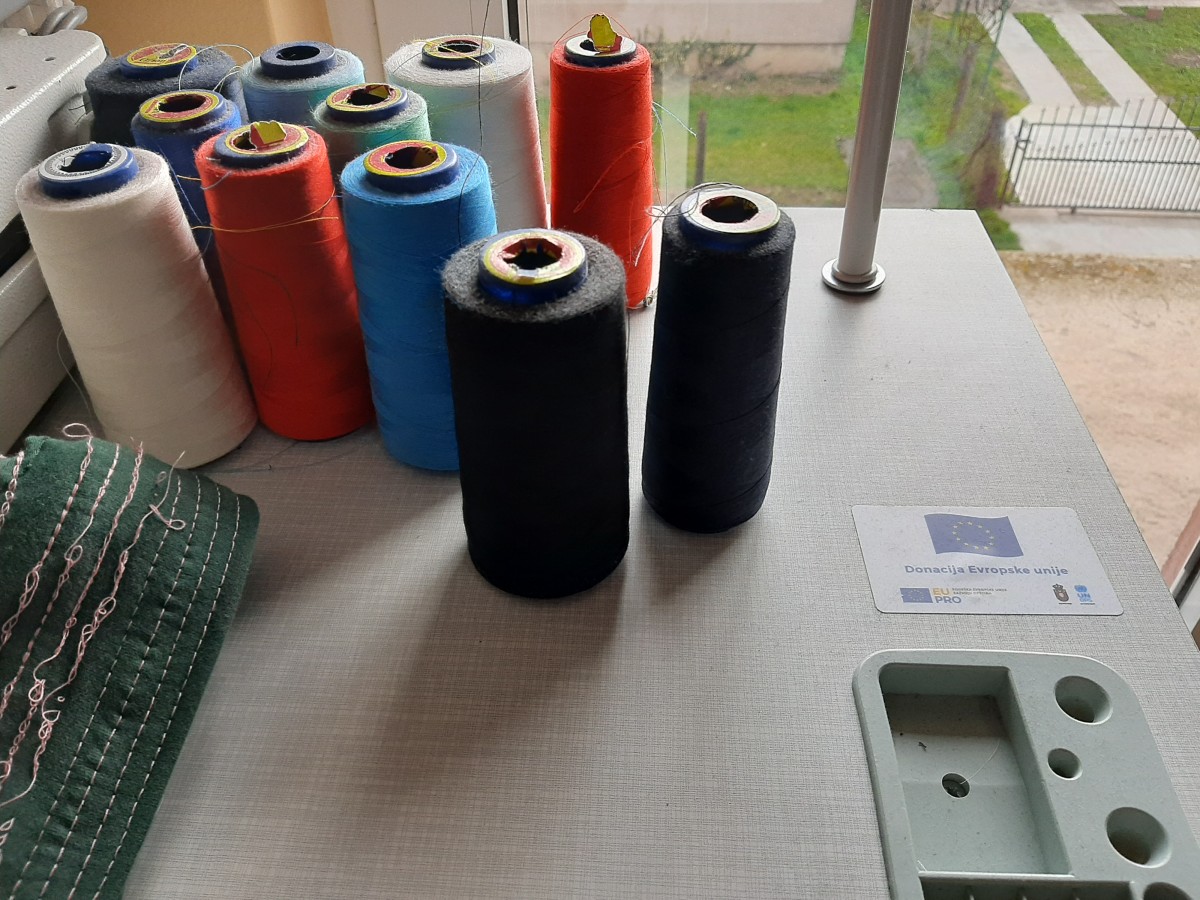Šabac, 12 April 2021
How Koki and Kanda helped the famous brand from Šabac got its name -Kokikando
Marija Milutinović and her husband lived abroad for years. When they founded their family, they decided to return to their homeland. At that time, while babysitting at home, she often spent time learning sewing techniques, and focused on children's wardrobe. The experience that her mother gained working as an accountant in various companies, encouraged Marija to consider starting her own business and producing wardrobe for children. "My mother worked for a production that did a similar job as we do now. That's how I got the idea to start my own enterprise. Since I am an economic technician, I knew the financial side of the business, which meant a lot to me for starting a business ", Marija Milutinović, the owner of the enterprise Kokikando, begins her entrepreneurial story.
At the beginning, Marija faced many challenges. She had a product, but it was not easy for her to place it on the market. "I went from town to town looking for customers and shops to sell my clothes. I remember the moments when I went into the shops offering them what I had sewn, and people looked at me strangely. They simply did not trust the new suppliers ", Marija is honest about the difficult beginnings. "However, as time passed, we reached our customers with the quality of our clothes and gained their trust over time."
Marija based her business on the production of children's body shirts, tops and tracksuits and leggings. "We make clothes for children from two to fourteen years of age, to wear them every day in kindergartens or schools. However, we wanted to advance, to introduce something new for which we needed additional funds ", points out Marija. Thinking about how to improve her production and secure funds for new machines, she was looking for various public calls. Seeing the EU PRO public call providing the European Union grants for small businesses, she decided to apply and try to realise her idea. "When I saw the call, I truly believed that I would receive a donation. I did my best myself and spent five full days completing the application. I filled it carefully, detail by detail and had a good feeling ", Marija proudly says. " The machines we received with the EU support opened doors for new things in our enterprises. Now we have a machine for small decorative embroideries which we haven't had before, as well as a machine for buttons. We had manually hemmed and cut the material before, and now we have a machine that edges and cuts off excess material. That gave us the opportunity to produce various pieces of clothing, from dresses and skirts with embroidery for girls, T-shirts with a print, to pants for children with a zipper and buttons. "
Marija's enterprise has become known throughout Serbia, especially in terms of price and quality. Regular customers who keep coming back confirm the fact that they are doing the right thing. "We have our retail shop in Šabac, but we cooperate with stores throughout Serbia, from Subotica to Bujanovac, and we also export to Bosnia and Herzegovina." Our customers say that we offer really affordable and quality clothes, but what makes me smile is when a child enters our store and chooses a piece of clothing with a print of a favorite animal or a hero. I am certain about the quality of our products and we really take care about the material we select for sewing. We never make a compromise with the quality and always use only quality cotton in production ", Marija proudly points out.
With the EU grant, they expanded production, but also increased the number of employees. "Eight of us have permanent employment, and just one is a man. Somehow, women are more often engaged in this business, as they are skilled with machines, needles and thread ", Marija tells us, stating that thanks to the EU PRO programme she managed to fulfill a wish and help the maternity ward where she gave birth to her children. "I wanted to help the Šabac maternity ward, and donate what they needed most. They lacked baby moles, blankets, and sheets. Althoug ee don't normally do a baby programme; I was so happy to address their needs and provide them products ", concludes Marija.
At the end of her story, Marija adds an anecdote about the very origin of the enterprise name Kokikando, which is the story well-known to her neighbours. "I remember sitting with my husband in the yard while our son, whose nickname is Koki, was playing with our dog Kanda. It was a period when we were thinking about the name of our company. At one point, the child and the dog started making a mess and we shouted Kokikando several times. We looked at each other and came to the same conclusion - it was the name for our enterprises and It was a complete success ", Marija ends her story.
The European Union, in cooperation with the Ministry of European Integration, supported over 200 micro and small enterprises and entrepreneurs with more than 4.3 million Euros through the EU PRO programme. The funds were used for the purchase of new equipment that help the enterprises to improve production and competitiveness and create new jobs.
Through the activities of the EU PRO programme, the European Union contributes to the more balanced socio-economic development of Serbia with a total of 25 million Euros. The programme aims to contribute to increasing the competitiveness of micro and small enterprises, improving the business environment and strengthening social cohesion in 99 local self-government units, in two regions: the Region of Šumadija and Western Serbia and the Region of Southern and Eastern Serbia. The activities in the field are implemented by UNOPS.




